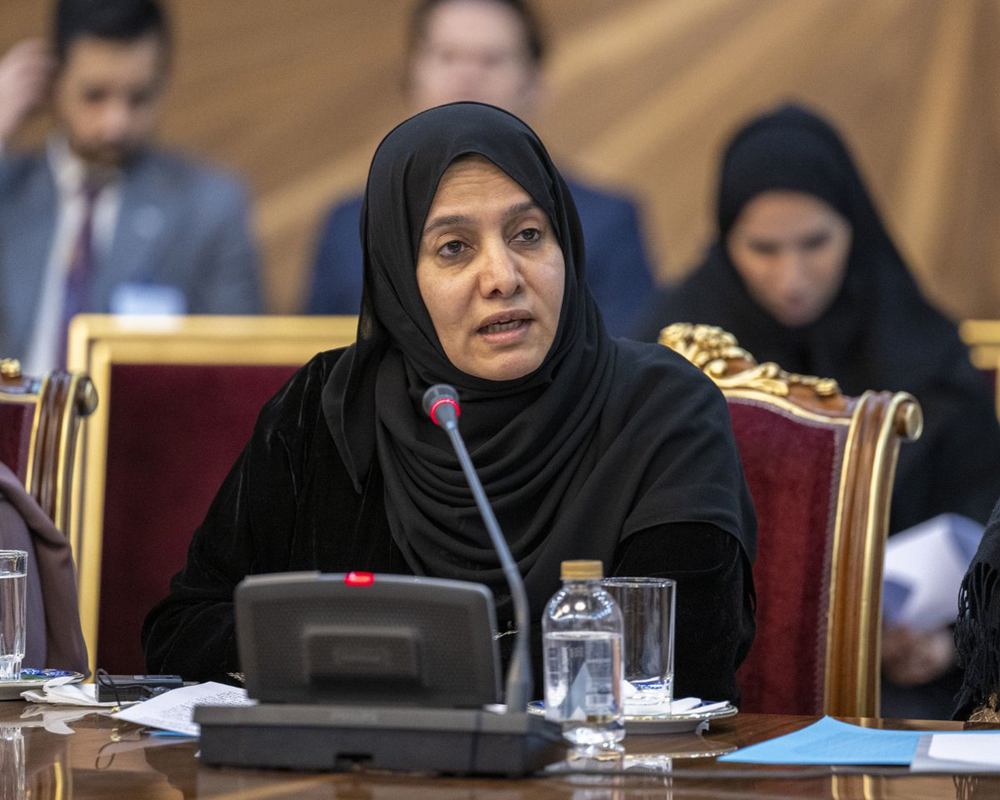The First International Congress for Women of Influence gathered influential female figures including wives of heads of state, ministers, vice presidents, and parliamentarians from around the world.
Qatari women have assumed pioneering roles and important positions that contributed to the development of their country, a top Qatari official said in recent remarks.
Hamda bint Hassan Al Sulaiti, Deputy Speaker of the Shura Council, highlighted the role of her counterparts during a speech at The First International Congress for Women of Influence held in Iranian capital of Tehran on Friday.
Al Sulaiti noted Sheikha Moza bint Nasser Al Thani’s pioneering role on a local, regional, and global scale, as well as her numerous humanitarian initiatives in the fields of education and health.
Regarded as one of the most prominent female figures in Qatar, Sheikha Moza has been actively involved in various endeavours to help social issues and education in the country.
She spearheaded Education City in Qatar, built in 1997 under her leadership as chairperson of Qatar Foundation.
Through her role at QF, Sheikha Moza has provided young Qatari women with an alternative to scholarships abroad by opening different fields of study and international universities here in Doha.
In the not-too-distant past, Qatari men got scholarships to study abroad but this same privilege was not extended to single Qatari women or those keen on travelling without a male guardian.
Then in 1995, under the influence of Sheikh Hamad bin Khalifa Al Thani, women finally began receiving offers for scholarships.
A total of 1,078 Qatari women were enrolled for the academic year 2019-20 across all QF universities combined, with 254 graduating.
In comparison, just 371 Qatari men were enrolled and 98 graduated.
Qatari women also occupy more than 50% – a majority – of roles within the Ministry of Education.
The percentage of women at Qatar University, be they members of staff or administrative employees, also exceeds 50% of the total at the university as a whole.
Over the past year, Qatar’s public sector created the most job opportunities with over 5,000 new hires. New positions were predominantly filled by women who made up 69% new hires, according to a recent report.
Meanwhile, 1,850 Qatari citizens were hired by the private sector. Male employees made up 52% of new hires and female candidates represented 48%.
The conference in Tehran, which gathered more than 300 guests from different countries, aimed to provide a common ground for exchanging experiences and opinions among influential women around the world, as well as to provide the necessary support for efforts to promote women’s roles in their societies.
The Qatari official also touched on the skills and qualities that distinguish influential women, including leadership capabilities and insightful vision for their communities.
Meanwhile, Al Sulaiti applauded the struggle of Palestinian women for nearly a century and noted their prominent role in improving the quality of life for their children despite Israeli occupation.
She also highlighted the work of the renowned Palestinian journalist, Shireen Abu Akleh, who was shot and killed by an Israeli sniper in an incident that shook the world to its core.







